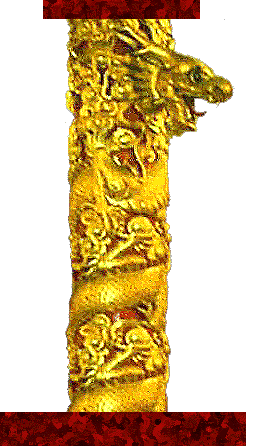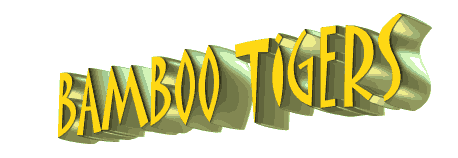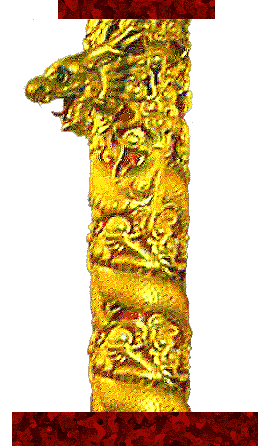| |
Was this how it felt to lay dying? The mind so detached from the body that it seemed one could fly?
He remembered the world as a beckoning patch of light in the vestibule ahead; Mouse Lee walking closely at his side, as fearful as he of killers in the dark; a twist of the key in the lock; stepping to presumed safety inside; then, explosions from hell.
Still vaguely conscious on his way to Mission Emergency in the ambulance, whose wailing siren echoed his grandmother's screams when he collapsed at her feet, gang-kid Mark Chan had no expectation of living through the rest of the night. Mouse already was dead.
It was the early morning of Sunday, September 11, 1977. It was 1:45 A.M., a week to the day, and short but an hour, of the moment when hell itself breathed out contagion to this world in the heart of Chinatown at the Golden Dragon. Five had died then, now Mouse, and now....was he next? Was Mark Chan finished with life at 18?
His body was in shock, yet his thoughts raced with the legendary clarity of a drowning man.
Quickly! Quickly! Live it all again! There is so little time!
He saw himself at the age of 12, arriving in San Francisco from Hong Kong. What excitement then, to be young, to stand on the brink of a whole new world! He marveled that there hardly seemed to be any people on the streets.
Where were the people? Where were the throngs of Morlo Gai and its thousands of shops? Where were the masses filling the Open-Air Night Market at Macau Ferry Pier, laughing at story tellers and listening to the minstrels' songs? Here, there were no armies of laundered clothing, strung, like disorderly rows of limp soldiers, on lines from the windows of flats. There were no squatter's huts as on the hills above the sampan villages of Shaukiwan.
He remembered falling homesick for familiar sights after he first arrived. And then he found Chinatown: the bright-windowed shops, the crowded avenues and alleys, the markets with baskets of vegetables outside, and, across Broadway, even a "ladder" street like Wing Kut back home, with steps to climb up the steep hill. The theaters featured movies he could understand, and everywhere in Chinatown were signs he could read. It was like Hong Kong all over again.
He had thought then that he'd never learn English. Not knowing the language had set him apart, but he had made it to Francisco Junior High.
He was 14, in the eighth grade, when he met Tom and Dana Yu. The Yu's didn't look alike, but they were twins. They were 18 days younger than he, and shared his homeroom. They lived west of Chinatown, on Hyde Street, near Jackson, with their sisters and brothers.
Mark didn't hang around much with the Yu brothers in those days, but, still, they were friends who spoke his own language. English was important in school, but he was more comfortable in Cantonese. Tom and Dana, who also had emigrated from Hong Kong when they were 12, spoke Cantonese with him all the time.
At 16, Mark went on to George Washington High School, a featureless, contemporary structure at 30th Avenue and Anza in the Richmond. It was while he attended Washington that Mark began to grow closer to Tom and Dana. He needed friends. He was lost out there at school in a sea of Caucasians and blacks. The Chinese boys whom he saw there were either studious, boring or jocks--or members of the Wah Ching and Hop Sing Gangs. Those guys were enemies of his friends. He knew the twins belonged to the Joe Boys, subject to Wah Ching derision as "jellybeans." In 1975, there wasn't much heavy trouble outside Chinatown between the W.C.'s and the Joe Boys, so Mark was able to survive at Washington, despite his association with the twins.
He tried to be more like the twins and the kids they hung around with. He acted tough. They expected him to be that way. The gang trouble, apart from isolated incidents, started spreading beyond Chinatown in 1976, as spring moved closer to summer. Things became more difficult for him at Washington. The W.C.'s wouldn't leave him alone. They already labeled him a Joe Boy.
Mark worked at a part-time job and bought himself a car, a green Charger. Tom and Dana became even friendlier then, as did some of the other Joe Boys--Melvin Yu, Peter Cheung, people like that. He drove them all around in his car. He let them borrow it, too, when he went to work. They came around to pick him up after he was finished. That was when he decided he would have to become more than a friend to Tom and his crowd; he would have to become their brother in the gang.
In response to Tom's direct invitation early in the summer of '76, Mark became a Joe Boy. That changed the relationship a bit. He listened more carefully and respectfully to what Tom had to say. Mark looked up to Dana, too, but Tom had the charisma of a leader, and a certain look in the eyes. More importantly, Tom was marked with the surest sign of leadership, as interpreted by the Chinese boys: prominent eyeteeth, like a tiger's fangs. Tom knew these things about himself. He came naturally to his position, in a direct line of descent from Joe Fong.
Shortly after school let out for vacation, Mark visited Tom at his house near Jackson and Hyde. They were alone. Tom leaned back in his chair and said: "Now, these days we have a lotta trouble against the W.C.'s. You know, if you don't fight back, they look down on you, keep on buckin' you. They gonna shoot you or somethin'. If you don't fight back, they'll come and get you."
Mark had no feelings against the Wah Ching. It was mostly the older ones, like Wayne Yee and Gary Pang, who hated them, stemming from the days of Joe Fong. "They are old-timers," said Tom. "They came a long time ago. They know a lot more than us. You have to pay respect to them." That meant you had to give them some face.
As did the older ones, Tom hated the W.C.'s. He told Mark that when he and his twin were very young, members of the rival gang gave them a terrible beating. It had made them decide to become Joe Boys.
Tom told him other things he hadn't mentioned before Mark became one of the gang.
There had been a police strike in the summer of '75, when, Mark already knew, a lot of robberies went down. Tom admitted now that many of those were perpetrated by him and his group. There was the time, for instance, when he went into a restaurant and asked the lady owner for money, but she wouldn't give him any. She threw plates at him instead. Tom hadn't thought it funny. That lady gave him no face.
Wah Ching spotters knew where Tom Yu lived. They knew it was a hang-out for the Joe Boys. Attacking him would increase the chances of swatting several at one blow.
Someone burned up his car at the beginning of that summer. A white kid with long, blond hair was seen running away from the fire. Then the steps of Tom's house were blown up with a pipe bomb, and the same white kid was noticed on the run from the scene.
Mark went to summer school at Washington that year, in 1976. One day he drove up with Melvin Yu, Peter Cheung and Pak Tam. As many as 40 W.C.'s and Hop Sings were hanging around. One of the W.C.'s threw water at the car. Mark made a U-turn, but the car died on him. Some opposing gang kids ran over--Dean Tom, Bill Wong, Frankie Huey, and a Hop Sing Boy named Winslow, a white kid with long, blond hair. They smashed the windows of Mark's car.
Outnumbered by 10 to one, the Joe Boys jumped out and left the car behind. They went downtown to Chinese Youth Alternatives, where they sat around and hashed it over. Mark was angry. Everybody was. Wayne Yee was there, but they didn't mention it to him because Wayne, then 25, was one of the "really old" Joe Boys, and the younger ones hardly ever talked to him, out of respect.
Mark had first started going to Wayne's C.Y.A. that summer, when he was 16. It provided summer employment for kids. His job was to show up and clean the place and "do stuff like that." Most of the Joe Boys were there, "working," when not stirring up trouble elsewhere.
Another night that summer, several of the guys--Tom, Dana, Peter Cheung, Melvin and a few more--went to dinner at the Golden Garden at 32nd and Clement in the Outer Richmond. The Chinese restaurant was situated in the neighborhood of the Palace of the Legion of Honor and across from Lincoln Park, where magnificent stands of Monterey cypress and pine lined the fairways of one of the most difficult of San Francisco's seven municipal golf courses. The links commanded glorious views of the Golden Gate.
Mark drove his Charger, and Dana, his Dart. They parked in the Safeway supermarket lot across the street. Tom treated everybody to an excellent dinner, but when they came out they discovered the windows of both cars had been smashed. The glove compartments were open, too. They were thankful they'd left no guns behind.
The lot was walled-in on all sides, the highest forming a 20-foot retainer set against a steep slope of Lincoln Park surmounted by the pro-shop and clubhouse. An openwork fence stood on top, backed up by trees. While the boys surveyed the damage to their cars, a shot rang out from above. They all ducked, but Mark glanced up and saw a Chinese kid at the fence. More shots were fired, perhaps as many as 10, yet they escaped without injury to anyone or anything except for a bullet hole in the Charger's left front fender. They had been ambushed by W.C.'s.
Escaping, they probably chose the fastest route to Peter Cheung's distant home on Amherst--a block south to the Geary Corridor, the five-mile boulevard running from the ocean through the Outer Richmond and the Richmond past Lone Mountain and Japan Center to Gough (pronounced "goff") Street; then south on Gough at St. Mary's Cathedral, whose architects had attempted the same futuristic design, with less success, in Tokyo; up the ramp to the southbound Route 101 Freeway at Golden Gate Avenue, and thence, past the Route 280 break-off at Alemany Boulevard, to the Silver Avenue Exit on 101.
All that long way to Peter's house at University Mound, the boys vented their anger in obscenities and threats of violent retaliation against the Wah Ching for having cost them so much face. They were "mad in the heart," a translation of the Chinese idiom for a rage so savage that it demanded bosau, revenge. As they calmed down at Peter's, the need for bosau set their cunning minds to work. Somebody, somewhere, someday, would pay for the insult, if not for the damage to Mark Chan's car. The feuding Hatfields and McCoys of American mountain lore were pikers in the practice of vendetta, if compared to these Corsican-souled Chinese.
| |
|









